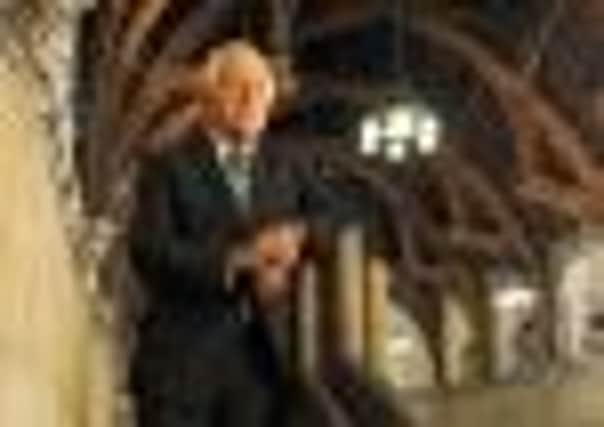Martin Vickers: BBC out of tune with local radio listeners


In reality, our duty here is to convey to the BBC the concerns of our constituents.
It is clear that our constituents greatly value local radio. In the case of mine, that means Radio Humberside.
Advertisement
Hide AdAdvertisement
Hide AdUnless someone is local to the area, it is difficult for them to appreciate the antipathy to the word “Humberside”. Indeed, one of my illustrious predecessors, Michael Brown, pledged to expunge it from the English language.
Alas, it lives on, although it is now sometimes referred to as “the Humber”. However, Radio Humberside has gone a considerable way towards overcoming the in-built suspicion of anything containing the word “Humberside”. Nowadays, we are at least referred to as “northern Lincolnshire”.
However I support the Government’s approach to the licence fee. Any organisation as large as the BBC can and should make savings. The licence fee is a significant burden to those on low and fixed incomes.
I acknowledge that although various schemes help some categories of my constituents, the licence fee falls disproportionately on the elderly and the housebound, who quite naturally rely to a much greater extent on their radios for company and entertainment.
Advertisement
Hide AdAdvertisement
Hide AdThe licence fee must be contained. I do not subscribe to the more radical proposals for the BBC that are supported by some MPs – I would regard myself as a critical friend of the BBC.
As the MP for Great Grimsby, Austin Mitchell, has pointed out, in many ways, the BBC sets a benchmark for quality and is an institution of which we should be justly proud, but it must recognise that it is funded by what is in effect a compulsory tax, and the anger the general public feel about some of the salaries and fees paid to executives and presenters.
Why do more than 100 members of staff earn more than the Prime Minister? I remain unconvinced of the merits of that situation, although I am sure they are capable individuals.
The director-general carries a heavy responsibility, but he and his colleagues must recognise that my constituents, many of whom do not earn as much in their working lives as his annual salary, contribute to that.
Advertisement
Hide AdAdvertisement
Hide AdMy constituents remain amazed that £15,000 per episode of Question Time represents a reduction in the presenter’s salary – £15,000 is not far short of the average wage for my constituents.
I am a passionate supporter of the free market and recognise that the BBC operates in a competitive environment, but it must, like all publicly-funded organisations, recognise the circumstances in which the country finds itself.
The Commons motion asked for local radio and regional TV programmes to be safeguarded, but not completely insulated from savings, which to a limited extent can always be found. I put “local” ahead of “regional”.
I find the suggestion of a “Radio England” completely unacceptable. Regional radio used to exist. I recall that when I bought my first Marconiphone transistor radio, I could tune into Midlands, North, London and the like as well as exotic stations such as Hilversum, Athlone and Luxembourg. However, regional radio never really had any buy-in from its audience – people did not tune into 434 medium wave for the northern news; they tuned in because that was the best reception in the area.
Advertisement
Hide AdAdvertisement
Hide AdI enjoy some programmes on BBC 4 television, but I remain unconvinced that its new programming could not or should not be aired on BBC 2 – indeed, it would have been before the latter station was dumbed down.
That is not a throwaway remark. I clambered into my loft last weekend and dug out some editions of the Radio Times from the 1960s and ’70s – do not ask me why I had them.
When I flicked through those pages, I appreciated how much rubbish is broadcast these days in comparison with years gone by.
I am told that BBC 4 is cheap television. I can understand that – it does not cost a great deal to re-broadcast a 1976 episode of Top of the Pops. I would prefer one from 1966, but that yet again shows my age.
Advertisement
Hide AdAdvertisement
Hide AdRadio Humberside and local radio generally is greatly supported by our constituents up and down the country. It is that above all else that the BBC should concentrate on safeguarding as it looks for savings in other areas.
• Martin Vickers is the Conservative MP for Cleethorpes. This is an edited extract of a
speech that he has delivered in the House of Commons on BBC funding.